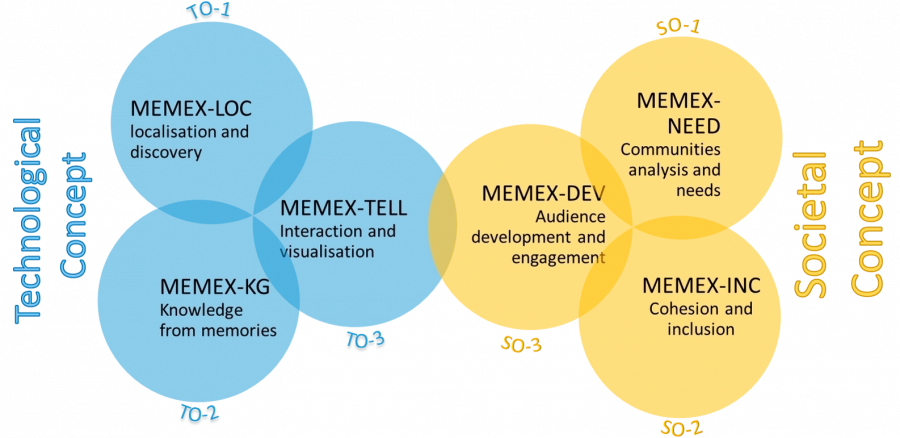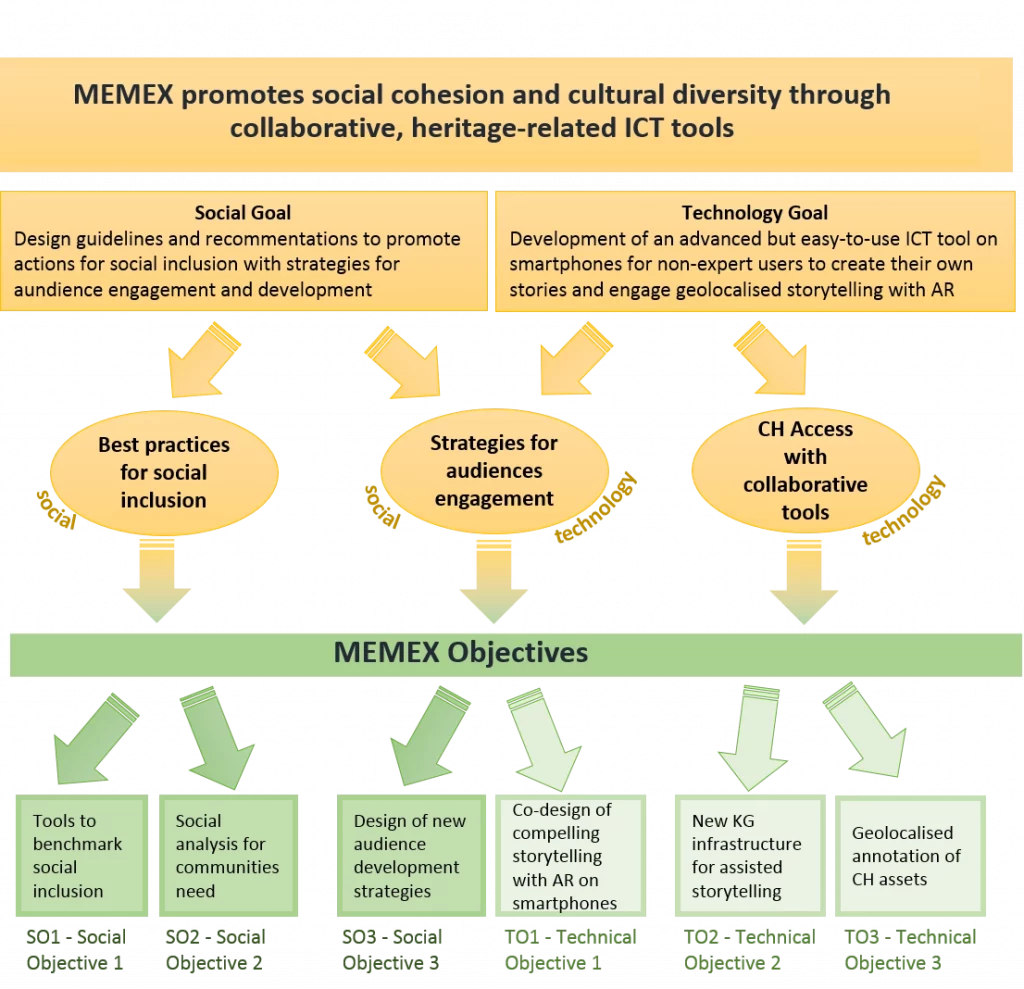Project facts
Presentation
The MEMEX project promotes social cohesion through collaborative, heritage-related tools that provide inclusive access to tangible and intangible Cultural Heritage (CH) and, at the same time, facilitate encounters, discussions and interactions between communities at risk of social exclusion. These tools empower communities of people with the possibility of welding together their fragmented experiences and memories into compelling and geolocalised storylines using new personalised digital content linked to the pre-existent European Cultural Heritage. The tools of MEMEX allow the communities to tell their stories and to claim their rights and equal participation in the European society. To this end, MEMEX nurture actions that contribute to, rather than undermine, practices of recognition of differences by giving voice to individuals for promoting cultural diversity.
The technological embodiment of MEMEX is an app installed on a smartphone allowing non-expert users to create and visualise stories related to their personal memories and experiences digitally linked to the geographical locations of either intangible (e.g. an event) or a tangible cultural places/object. The interface, designed on the needs of the community, will allow users to annotate using Augmented Reality (AR) any physical object or location with their memories in the form of digital images, videos, audio recordings or textual input using a smartphone. Then, the targeted communities will be ableto connect their experiences and memories with a new Knowledge Graph (KG), linking CH items and places with stories that are bound and entangled within the European history. Effectively, the users of MEMEX will be active actors shaping contemporary and historical content, including new material from their experiences and memories, and personalising cultural heritage and creative media content in a meaningful and social inclusive manor.
Impacts & Results
The target communities of MEMEX are socially fragile people that are systematically blocked from various cultural opportunities and resources that are normally available to members of a different group, and which are fundamental to social integration. As an heterogeneous sample of these communities, MEMEX will deploy three distinct pilots to analyse different expectations from communities dislocated in different regions of the European territory:
- Barcelona’s migrant women and the gender perspective in Spain : migrant women have participated in the planning and co-creation activites related to Barcelona’s cultural heritage linked to the particpant’s history. The pilot has a focus on the gender perspective to increase visibility of women’s history and the mutual understanding among different communities. This pilot consists of five core activities creating reports, policies and stories to inform the community, academia and governement?
- District XIX, digital storytelling with inhabitants in priority neighbourhood of Paris in France : an enriched cultural route in district XIX in the north of Paris (Rosa Parks area). This is a priority territory and depends on a specific urban public policy. The pilot has a focus on population in a situation of risk of exclusion (young people, senior) due to poverty; urban environment access to culture and academic heritage.
- Enhanced readings of shared Portuguese heritage through emanticipated eyes in Portugal : communities from former Portuguese colonies or other cultural spaces taht have a shared heritage with Portugal have rich cultural experiences. However, their experiences commonly run parallel to Portuguese culture, contributing to reshape it. The work promotes the production of mediated intercultural stories revolving shared heritage, promoting social cohesion between migrants and natives.
The MEMEX project can be described by two main parts tightly interlinked together: the technological and the societal concepts. The technology of MEMEX is instrumental to achieve the main societal objectives of the project.

The major goal of MEMEX is achieved by pursuing social and technical goals that drive six main project objectives.


